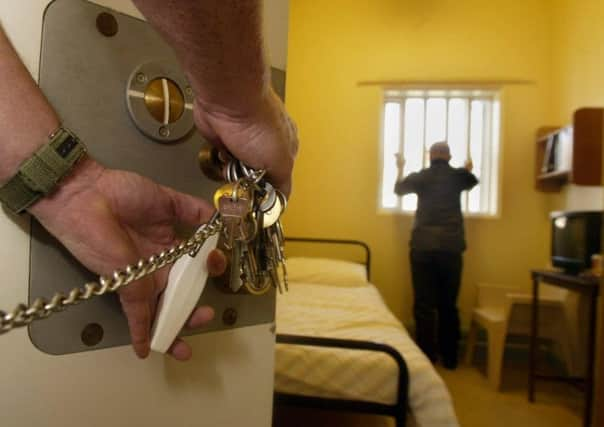Migrant prisoners can claim damages warns judge in Hull case


Mr Justice Dingemans, sitting in London, gave the warning as he ordered the release of a failed Sudanese asylum seeker who has committed serious criminal offences but been unlawfully detained for some seven months.
The judge declared that the 31-year-old, who for legal reasons can only be referred to as AA, was entitled to “real damages” against the Home Secretary, who has agreed that her deportation decision must be quashed.
Advertisement
Hide AdAdvertisement
Hide AdAA has since served a number of prison sentences for criminal offences, including one imposed at Hull magistrates court in January 2010 for battery of his former partner, who gave birth to his son.
The judge said AA’s detention after he completed his last jail sentence on August 30 2011 was at first lawful as he had committed offences and absonded on more than one occasion. There was then also “a real prospect” of him being deported.
But the authorities failed to review his detention when a 2013 medical report appeared to support his claim that he had suffered torture and was entitled to asylum, making his current detention unlawful.
The ruling means AA can now renew his asylum claim and is entitled to damages for the period since the report was produced as there is no longer a prospect of deportation taking place within a “reasonable” time, as required by law.
Advertisement
Hide AdAdvertisement
Hide AdThe judge said the courts “regard with extreme jealousy any claim by the executive (Government) to imprison a citizen without trial and allow it only if it is clearly justified by the statutory language”.
The judge said: “I accept the explanation about the lack of resources, but it does not provide any legal justification for the lack of action.
“The effect of the failure of the defendant (Home Department) to consider the medical evidence and to review the claimant’s detention is that... detention has become unlawful.”
“The defendant has incurred liabilities to the claimant, and the claimant must now be released.”
Advertisement
Hide AdAdvertisement
Hide AdThe judge said AA came to the UK in February 2003 and claimed he had been tortured for his opposition to the Sudanese authorities.
The judge said the medical evidence that should have led to a review of his detention showed that AA had more than 250 scars on his body “some of which must have been inflicted by third parties”. The judge said it was independent evidence that supported, though it did not prove, the claim he was tortured in Sudan.
AA was served with his first deportation notice in February 2008. While he was in prison his partner gave birth to a son. When released from prison in July 2008, he was ordered to be detained pending deportation.
He lodged an appeal against his removal and was granted bail by an immigration tribunal. The deportation order was withdrawn following fresh submissions, but in 2009, while on bail, AA was arrested for burglary and fraud.
Advertisement
Hide AdAdvertisement
Hide AdIn January 2010, he was sentenced to 20 weeks imprisonment and a restraining order was made requiring him not to approach or contact his partner. In June 2011 he was jailed for 30 months at Hull Crown Court for breaching the order. The following August a deportation order was served on him. He completed his latest jail sentence on August 30 2011 and remained in immigration detention ever since pending his removal.